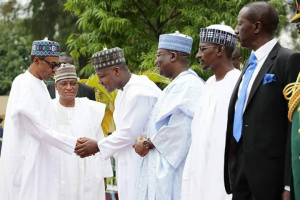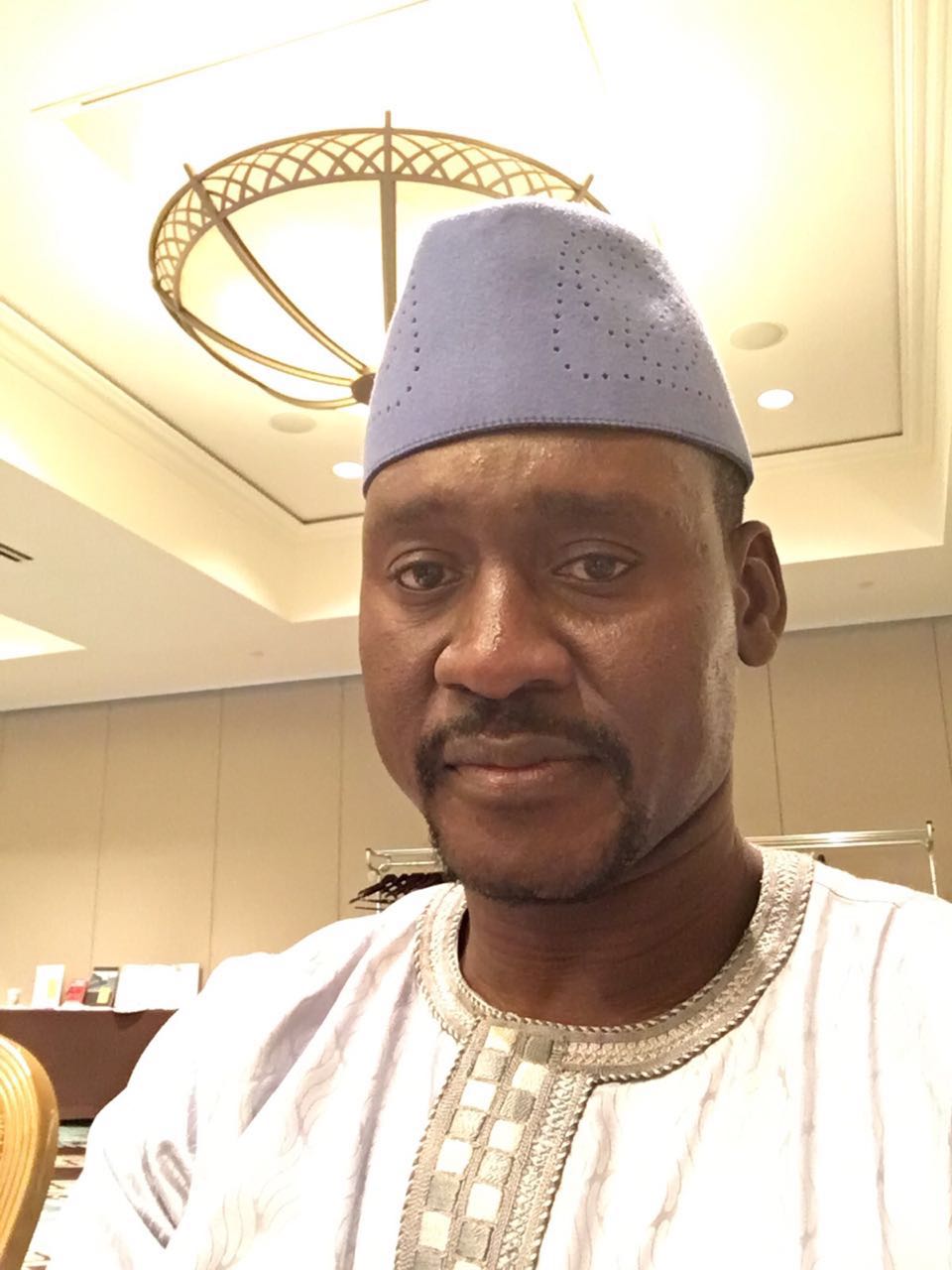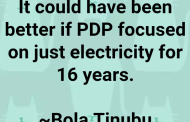Nobody Knows National Assembly Budget in Nigeria – Rafsanjani
Auwal Musa aka Rafsanjani, Executive Director, Civil Society Legislative Advocacy Centre, (CISLAC) speaks to Intervention on the budget padding scandal rocking the National Assembly (NASS) in Nigeria and how to end the phenomenon entirely.
Much of your work as a civil society activist has been on and inside the NASS since the Fourth Republic came into being in 1999. What is your reading of the current uproar regarding padding of the national budget?
The civil society looks back in horror actually. This is because we fought for financial autonomy for the legislature. We thought that financial autonomy would guarantee the independence of the legislature, enable the members to satisfy inclusiveness and participation through especially constituency accountability beyond just attending burial, naming and wedding ceremonies which many of them do not even attend back home. Effective constituency outreach would have been the fastest and cheapest way to enrich budget making. Unfortunately, to this day, constituency accountability is the least worry of many of them. There is no regret in the civil society in fighting for financial autonomy for the legislature. We would continue the advocacy for budget autonomy for the legislature because that is a very important arm of government. We need the councillors, the law makers at the state and federal levels because the legislative arms is still our check against dictatorship but the financial autonomy they got so far has been turned into a resource for looting and impunity.
So, it is not bad that this is happening because it is exposing what might have been happening, right?
It is good that this is happening. Before now, it has been outright extortion. Budget making and screening of nominees have become opportunities to maximise stealing and diversion of public resources. All of them have been stealing. That is anybody after the tenure of Salisu Buhari, Gali Na’Abba and Bello Masari. Take note that between 1999 and 2003, Obasanjo never allowed the NASS to have financial autonomy. It was only when Yar’Adua came that he expressed the preference for the NASS to have it. With Obasanjo, financial autonomy was used as an incentive and as punishment. If you do what I want, you can chop. If not, I will expose or criminalise you. So, I think it was from Yar’Adua this level developed. We must appreciate this administration in that regard because the fear of Buhari did not let the legislators extort as much in screening of appointees and budget making. It could have been worse.
But Ghali Na’Abbah is saying that it is not possible to pad the budget without the understanding of the executive.

Speaker Dogara and President Buhari
He was there and he must know what he is saying but as I said before, the trend that developed after his own tenure is different from what he ever experienced. I guess the sense in which he is saying so is that the executive, that is the line ministries and parastatals, pad or benefit from padding to the extent that the NASS pads the budget. I say this because the ministries are basically intimidated to accede to strange projects in the budget. The NASS does this only to go and collect the money once the budget is passed. As the NASS members go to collect the allocation to the strange projects, the executive also collect their own share of such fictitious bounties. To that extent, the former speaker would be right to say so but the NASS is where the move is initiated, not from the executive. And this culture has survived because of the power of the House of Representative over the budget and the power to intimidate, to harass everyone to keep quiet.
You do not see any politics in what is going on?
I do not think it is politics. As I said, it is an opportunity that came to clean the monumental fraud that has been going on. It is nemesis and they couldn’t stop it.
You mean even the Speaker had no room for manoeuvre to have nipped this rupture?
He was initially reluctant to remove the Chairman of the Appropriation Committee but the members insisted the guy must go. They were aghast that he could pad his own constituency budget with such a hefty share. That was what prompted the members who felt marginalised that only one of them had taken the lion share. It was like, are you the only legislator here? So, the Speaker had to bow to the pressure of the members and remove him and then the guy said okay, since you have removed me, I will expose what you too have done. And since he knew what each principal officer had done, he went full blast.
Outside of this scandal, how do you assess Speaker Dogara so far?
He has been able to manage to keep the House intact for the past one year, to work closely with the Executive arm without rancour and destabilization unlike the Senate. The House of Representatives and the Executive is more integrated simply because the Speaker has agreed to work along party lines.
Has he added any value that is his own initiative?
From the civil society angle, we are impressed with his inauguration of a committee made up of NASS, civil society and other experts because a lot of people are concerned that too much money is being spent on the NASS. So, much is being expected of that committee in terms of more realistic estimate for running the NASS and for outlining its best practices. It was his own initiative.
Let’s come to the main question. Everything put together would suggest that the legislature is not serving the people. How might the NASS be made to serve the Nigerian people?
A number of things must be done. One, we must make the NASS publish the NASS budget. The NASS budget is the hub of looting. But even the legislators do not know how much it is. Only the principal officers know.
Does it mean nobody audits it, even for auditing sake?
Nobody audits that budget. How can you audit what is not known. The question is what is it that a particular budget item cannot be known in a democracy. So, that is one. Two, ensure that the Budget and Research Office of the NASS comes into law. That office will equip the legislature to come to grips with the budget. How can a legislator just entering the chamber compete with the executive arm which has skilled manpower to deal with budget? Beyond personal interest, the average legislator has not got the requisite knowledge and capacity to handle the budget. So, getting that office into place would help. It will be filled with people who have the knowledge, the experience and the integrity.
Surely, knowledge and experience but is integrity not too subjective a qualification?
You can put a mechanism in place to identify and sanction breach of even that. Yes!
Ok, let’s continue!
I was on the second point. The third way is for the NASS to institutionalise investigative and public hearing techniques into national issues and problems. That way, it can earn the status of an honest broker in the eyes of the people. My fourth point is for the information machinery of the NASS to work better, to be up and running with up to date information. I would lump together two points here, that is, the need for emphasis on the capacity of two categories of people who make or mar the NASS. One is the legislative aides. The legislators need to go beyond appointing people who helped them to win elections. The legislative aides must be highly qualified people, not the sort of people who carry handbags for their principals. The second category is the legislative staff. Their deployment in terms of lucrative or non lucrative committees cannot help the NASS. People must be posted to where they have advantage in terms of knowledge and experience to identify and fill gaps. The legislature needs staff who can add value in conducting public hearing, in report writing and similar duties. Otherwise, what will come out will never be qualitative or inspiring to the people. Still on this, I should say that legislators themselves need to increase their overall capacity especially in terms of oversight and what goes on with programs and projects. Finally, finally, let me add that the media is key as far as investigative journalism is concerned. Without that, the rot will never come out on many issues. The civil society has similar role to the media.
Is it not time you become a legislator yourself?
Well, for me, I feel I can serve Nigeria in different ways. The point is to do the right thing as I think I am doing now by conscientising and mobilising people to protect the right of Nigerians, by advocating for transparency and good governance. It is the direction I would like to continue because, considering the expensive nature of elections and some of the things you have to do to win elections in this country today, people like me will not afford it.




























